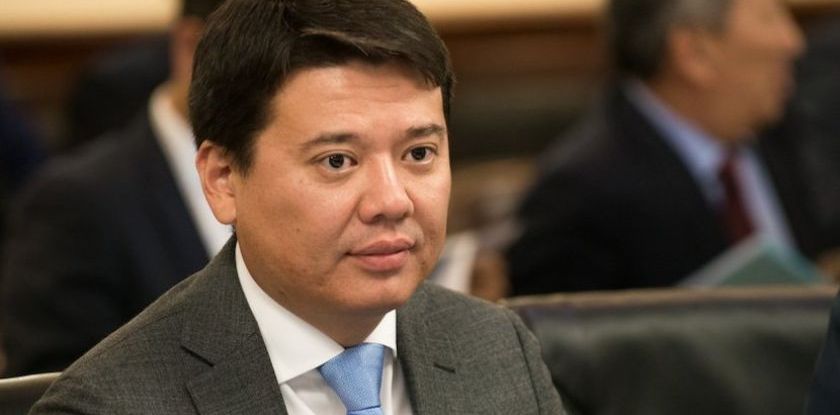Kazakhstan’s Minister of Justice Marat Beketayev regularly reports on Anatolie and Gabriel Statis’ claim against Kazakhstan on the media. However, he has been omitting certain important details. We have decided to investigate what they are.
Unfortunately, we didn’t manage to obtain official comments from Anatolie and Gabriel Statis. However, we have successfully persuaded Vitaly Dyakonu, the press-secretary of the companies belonging to the Moldovan investors, to share his personal opinion on this story. And we believe this opinion is worthy of attention in terms of the objective assessment of the situation.
First, Vilaly Dyakonu confirmed Marat Beketayev’s statement that Kazakhstan’s representatives had appealed the Washington D.C. court’s decision of August 13, 2019. In other words, Kazakhstan’s representatives continue to insist on Kazakhstan not having any kind of commercial properties in the US that can be arrested or penalized.
The plaintiffs, by the way, do not acknowledge these statements, however, something else is more important here. «Presently, the US court is contemplating the matter of not arresting but uncovering such assets», says Vitaly Dyakonu.
Second, some assets have already been arrested albeit in the other jurisdictions. At this point, according to Dyakonu, the courts and court enforcers of four European countries (Netherlands, Sweden, Belgium and Luxemburg) have arrested Kazakhstan’s assets in the amount of about US 6 000 000 000 $.
Third, in their denial, Kazakhstan’s representatives are trying to prove the complete legal and economic independence of Samruk-Kazyna’s assets from the state. If they manage to do so, their insistence of the absence of the state assets may be of some value in the US court.
Statis’ representatives believe this approach to be utterly wrong. «Our position has been completely supported by two Dutch legal authorities as part of the arrest of the Dutch Kashagan oil-field operator’s assets belonging to Samruk», says Vitaly Dyakonu.
Fourth, the uncovering of the US assets will result in other actions. «Basically, Kazakhstan’s assets kept in BHY Mellon depository may be arrested based on the US court’s decision if the existence of such assets on BNY Mellon’s balance and the commercial nature of these assets will be proved», says Dyakonu.
One should remark that the active search for the assets and the proving of their ownership by the state have already led to the questionings of Kazakh officials. Beketayev is trying to deny the very fact that such interrogations did take place calling them «a normal participation in the court proceedings as witnesses». However, Vitaly Dyakonu does not see anything «normal» in this kind of «participation» believing that Beketayev’s statement has nothing to do with reality.
«The Republic of Kazakhstan had to provide witnesses for such interrogations based on the US court’s decision (with that, the court did not stipulate what individuals must give their testimony, only the parameters of the latter). The interrogations were held under oath and, if the fact of perjury is established, the witness is facing the court’s sanctions that even include prison term», says Dyakonu.
He has also said that Kazakhstan’s representatives had been questioned before. As part of the Swedish trial related to collecting the National Bank’s reserves in the amount of US 85 000 000 $, the Bank’s employee Aliya Moldabekova was questioned.
What losses has Kazakhstan already suffered as a consequence to the war with the Statis?
To answer this question, Dyakonu has sent us an assessment of the damage calculated by the National Bank of Kazakhstan. The figures have been taken from the document presented as part of the legal trial in the Netherlands.

As we can see, according to the NBK’s estimates, for the period from November 1, 2017 to May 31, 2018 alone (when the National Fund’s resources were arrested), Kazakhstan’s losses constituted almost US118 $ (USD 117,796,874.55).
The figure includes:
- The National Bank’s losses suffered as a result of the blocking of the funds and securities. Consequently, the NBK was unable to manage them for the period of 7 months.
- The compensation for the losses suffered by third parties due to the cancelling of the pre-planned transactions.
- The court and legal expenditures.
Let us remind you that the total sum of Statis’ complaint constituted about US500 000 000 $.
Meanwhile, the already sustained losses may turn out to be miniscule in the face of the upcoming trials. And it’s not just about the financial aspect. If Kazakhstan’s lawyers manage to prove in the US that Samruk-Kazyna’s funds have nothing to do with the state, this fact may later serve as a precedent for some completely different squabbles. For even the National Fund’s history started with just that — the dispute over the ownership of the funds received after the completion of the Caspian fields transactions.





